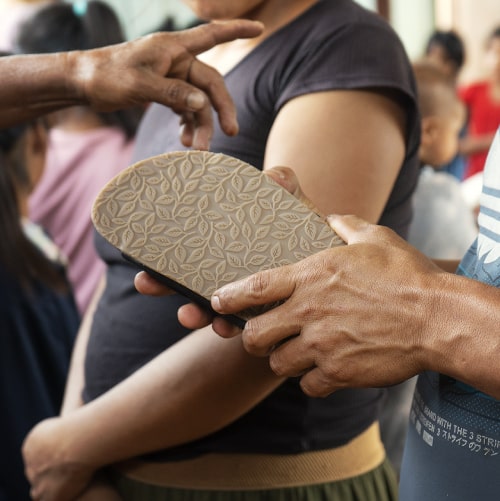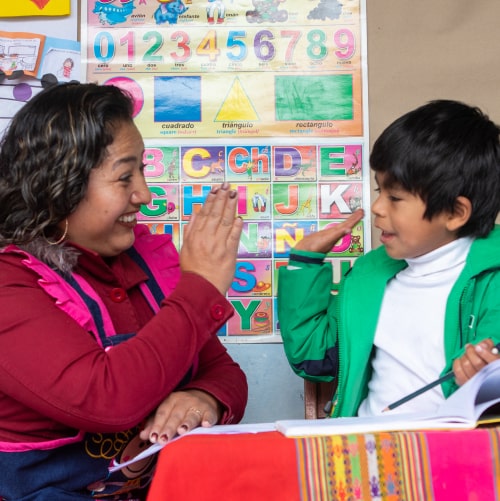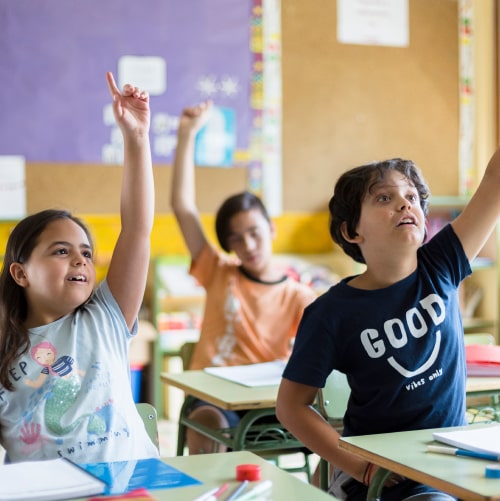We are proud to present Pixed as one of the companies selected for the Due Diligence stage of the Entrepreneurial Fund, a stage in which we develop, together with each team, a business plan and a financing scheme so that the Investment Committee can select those who will be part of the first portfolio of the Wiese Foundation Entrepreneurial Fund.
What is Pixed?
Pixed is a Peruvian company dedicated to the research, creation and development of inclusive technologies for the preparation of personalized limb prostheses, in addition it is in charge of the psychological support for the school, labor and social inclusion of people with physical disabilities.
The endeavor leaders are Ricardo Rodríguez Torres and Stephany Saavedra Herrera, who intend to generate a change in the lives of people with disabilities: “We want to provide them with the tools that allow them to exploit their skills.”
Constitution of Pixed as a company
Pixed was born with the intention of being able to generate technologies that help people with disabilities, such as Ricardo Rodríguez’s uncle, who had both a physical and cognitive disability.
Ricardo tells us: “My uncle was always in a wheelchair and because I lived with him I understood that people with disabilities were not isolated from us. I also realized that there was a lot of indifference of society towards disability and as I promised him, I made a commitment to continue working with people with special needs.”
Stephany and Ricardo met when they studied in university. She is also familiar with the disability because she lived a similar situation with her grandmother. Thanks to these experiences they decided to start their social endeavor, because they detected a need in the market and the opportunity to generate a solution with social meaning.
The initial idea of Pixed was to be an NGO, but they encountered multiple impediments, so they decided to formalize as a company with the premise of being totally transparent. Then they began to work a business model that consisted of allocating the profits from the sale of their products to the generation of prostheses for low-income people.
However, they realized that this scheme was not sustainable over time, so they decided to rethink the way to generate income, planning a new business model that involves the direct sale of customized prostheses at low cost, with less delivery time and with integral accompaniment during therapy. Today they have combined their new model with credit sales, as there are clients who cannot assume the total amount of the prosthesis in a single payment.
Social and environmental objectives
In Pixed, they are convinced that people with some type of disability are productive; however, they do not have physical spaces enabled for their correct work, and both employers and employees are full of prejudices, to the point of hiring employees with disabilities only to meet the quota required by law. Therefore, one of the fundamental objectives of Pixed is to ensure that its beneficiaries reinforce their self-confidence and have tools that allow them to maximize their abilities.
At the level of social impact, Pixed has worked directly with the reduction of inequalities, empowering people with disabilities so they can work, develop and act in the same way as a person who does not have physical disability.
Another of Pixed’s main objectives is to reduce the costs and production times of devices and prostheses to ensure people with disabilities are productive as soon as possible, both at academic and work level.
Regarding the environmental issue, they avoid using electronic cards to reduce the carbon footprint. Also, the plastic used to make the prostheses is cornstarch; that is, biodegradable. As for the packaging that contains the prosthesis, it is designed to be used more than once; that is, the box of the delivered prosthesis also serves as its case.
Financial sustainability
At the beginning it was difficult to reconcile sustainability with the social objective. They indicate that many times the word social is linked to very welfare situations to the point that customers say “Why are you charging for it? Give it to me for free”. For this reason, Pixed has been dedicated to educating its beneficiaries about the importance of the sustainability of a social business in order to maintain itself over time.
The key to the business is to offer very affordable prices with payment facilities such as sponsorships and credits with very low interest. For example, Pixed credits have an interest rate of 10% on the total price and can be paid between 6 and 18 installments, depending on the means of families.
As for personal sponsorships, it is a form of financing in which people with disabilities have a sponsor (usually their employer) that helps them with the financing of the prosthetic piece.
First allies
Pixed leaders indicate that without the support of Concytec (National Council of Science, Technology and Technological Innovation) and 3DREY they would not have been able to consolidate the company, since they had only one 3D printer and the time they needed to consolidate would have been greater. Concytec not only helped to validate materials and designs, but also facilitated the incorporation of specialists and consultants. For its part, 3DREY supports them in the 3D printing service.
Also, since last year Pixed has the support of UPC and Kunan, which have been fundamental in the growth of this social endeavor. In addition, Juguete Pendiente has become an ideal alliance, as they channel donations through PANDA (Assistance Program for Children with Anatomical Deficiency), Pixed’s crowdfunding platform.
Challenges
Ricardo tells us that at the beginning of the endeavor they worried about subsisting and having everything covered, but now the challenge is to attend more and more cases, so the work becomes much harder and, consequently, production capacity begins to fall short, so as they have progressed they have had to reorganize at the rate of growth.
Wiese Foundation Entrepreneurial Fund
Pixed recognizes that many things need to be improved internally, especially the issue of finance and marketing strategies; therefore, it expects these areas of improvement to be worked upon within the Due Diligence process, hand in hand with the specialists.
Ricardo says he loved knowing the accompaniment time offered by the Wiese Foundation Entrepreneurial Fund, so he decided to apply. He acknowledges that the Due Diligence stage has allowed him to organize internally to strengthen his social business and gain the attention of investors. He also states that, although the monetary part is important, the guidance that specialists may give during the process is even more paramount.
If you want to know more about how Pixed helps promote the empowerment and inclusion of people with disabilities, you can visit its website: https://www.pixedcorp.com/








